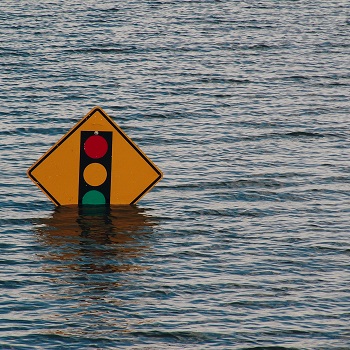How MEPs Use the Internet: Where is the Dialogue?
How to communicate better with the people of Europe? That’s one of the great challenges faced by all European institutions. It’s especially crucial for those who represent us in the European Parliament. When those 785 newly elected members take their seats on July 14, how will they relate to those they represent? Through speeches? press releases? newsletters? public meetings? How many will use the internet?
Fleishman-Hillard has taken the temperature in the outgoing parliament. It has just completed research to see how the present crop of MEPs regard the internet and the amazing new possibilities which it opens up for political dialogue. FH suggests that members may be underestimating the effectiveness of the web for reaching out to voters.
The survey (to which 110 members responded) shows that the vast majority of MEPs do use the web extensively in seeking out information, both for keeping up to date with events through media outlets and for researching policy issues. Many of them use websites, blogs and newsletters to set out their views and keep their constituents informed about current developments. But all still see television and newspapers as the key media for getting their messages across.
It’s the dialogue which seems to be missing. The internet opens up vast possibilities for interactive communication, yet only 17 per cent of respondents saw digital media such as websites, podcasts or blogs as being “very effective” as communications tools. For half the MEPs personal engagement was the key and for 34 per cent it was TV and newspapers. Six out of 10 respondents had never heard of Twitter or did not intend to use it.
Of course we are talking about new phenomena. Facebook, YouTube, MySpace and Twitter did not exist at the time of the last European elections, and as the FH survey says, it is perhaps surprising that even 17 per cent recognised the potential of these outlets.
There is no question that these digital media can be immensely powerful tools, but in many different ways. When Gordon Brown uses YouTube to announce a policy initiative he is trying to reach the mass media, not to communicate with a selected group of chosen “friends”. By contrast we have Barack Obama’s internet campaign, which provided “personal” messages from Barack to the cell phones, Blackberries and computers of millions of his supporters. It was a telling factor in informing, mobilising and inspiring them to maximise the vote.
There is a generation issue too. Moldova is said to have had a Twitter Revolution, when demonstrations were organised via tweets among university students. Many campaign organisers are now well versed in the use of the internet to build support and co-ordinate action. I well recall a campaign to protect baby seals in the 1980s, when thousands of protest postcards flooded the Commission’s Berlaymont post room. Today that would all be done through the internet.
Technology will evolve during the five-year life of the new European Parliament, opening up new possibilities for interactive communication via the internet. I’m thinking for example of a new generation of television sets which will be directly linked with the web. I believe the impact of this could be profound. Watching TV is a social activity as compared with the solitary state of computer use and could turn internet communication into a much more responsive forum for the new generation of European parliamentarians. That MEP video diary could take on a whole new identity if the whole family can watch.
Find Out More
-
Why Europe needs a water resilience strategy
February 8, 2024
-
Why the EU can’t risk failure at COP27
November 4, 2022


